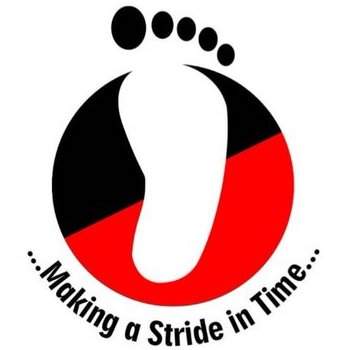Advertisement
2023 GOVERNORSHIP AND
STATE HOUSE OF ASSEMBLY ELECTIONS
- days
- Hours
- Minutes
- Seconds
Advertisement

Naira closed at N848.12 to the dollar on Tuesday, October 17, at the official window days after the Central Bank of Nigeria (CBN) reversed its policy on 43 items to save the country’s currency from further decline.
The CBN had, on Thursday, October 12, announced, among other policy issues, the lifting of foreign exchange (FX) restrictions hitherto placed on the importation of the 43 items by the former CBN governor, Godwin Emefiele, on June 23, 2015.
The new order allows importers of the items to purchase foreign cash through official channels in the Nigerian Foreign Exchange Market (NFEM).
It will also help promote price discovery, transparency, and credibility in the FX rates, CBN said, directing all and sundry to reference the prevailing FX rates from platforms such as the CBN website, Financial Markets Dealers Quotations (FMDQ), and other recognised trading platforms.
A check by The ICIR on FX transactions at the FMDQ showed that the naira slid significantly against the dollar, depreciating by 11.71 per cent to N848.12/$1 from N759.20/$1 as of Thursday, October 12, when the CBN lifted the ban on the 43 items.
Advertisement

According to the apex bank, it initially placed the ban to reduce FX demand on products that could locally be produced and conserve foreign reserves, among other reasons.
However, the acute shortage of FX supply had remained amidst growing demand, causing the naira to fall to a record low against the dollar and widening the gap between the official rate and the parallel (black) market rate.
More worries are that the CBN’s periodic interventions in the exchange market have yet to yield the desired result to improve price stability in the FX market due to the weak size of the country’s external reserves.
The foreign exchange reserves had depleted significantly by $4.2 billion to $33.23 billion as of October 16, 2023, from $29.03 billion on June 23, 2015, when CBN placed the ban, a check by The ICIR on CBN’s website has shown.
Analysts had pointed out that the CBN’s recently released financial statements showed a significant percentage of foreign reserves were encumbered, even as J.P. Morgan Asset Management’s analysis of the accounts indicated that Nigeria’s net foreign reserves were significantly lower than previously estimated.
A leading global financial services firm, J.P. Morgan, had faulted the figures in the CBN’s financial statements and posited that the lousy aspect of the record lies in the decline in the country’s net FX reserves.
Although CBN had assured that removing these restrictions would eliminate the need for importers of the 43 items to go to the parallel market, reducing the pressure on the naira, experts are worried about the continuous weakening of the naira.
What should the authorities do to halt the naira crisis?
Besides removing the distortions in the FX market, analysts believe the CBN needs to boost the market.
“While we appreciate the need to eliminate the distortions in the market, we reiterate our view that the only viable solution to the current FX crisis is to boost the country’s foreign exchange revenues,” analysts at CSL Stockbrokers Limited said.
According to the CSL analysts, the first step is for the government to reduce crude oil theft and enhance oil production.
“The swift start-up of the Dangote refinery, especially the export side of the business, remains a game changer in our view as it will be a major source of foreign exchange into the country.
“We believe that more has to be done to promote the country’s exports, with the agriculture sector receiving priority in order to increase the production of many cash crops for exports,” they said.
They urged the government to have a blueprint to explore the country’s enormous untapped natural resources to increase foreign exchange earnings.
“We believe steps like these will attract foreign portfolio investments, which could help stabilise the market in the interim,” the CSL analysts added.
Meanwhile, a development economist, Kazeem Bello, had told The ICIR that except the government assists in bailing out the CBN by finding foreign exchange inflows into the market, the naira would inevitably continue to take a plunge.
Lifting of forex ban on 43 items will collapse industries, MAN warns FG
Manufactures Association of Nigeria (MAN) has advised the Federal Government to immediately reverse the lifting of foreign exchange ban on 43 restricted items by the Central Bank of Nigeria (CBN) to avert looming job crisis, insecurity and economic contraction.
Vice Chairman of Basic Metal, Iron and Steel Products sector of MAN, Lekan Adewoye, gave the warning yesterday on a live programme. He maintained that the new policy would collapse several industries in no time.
The industrialist said: “The news came as a surprise to manufacturers, who are still struggling to stay in business. CBN did not ban the importation of these items in 2015, the apex bank only put a restriction on the importation of these items.
“For items that can be produced in Nigeria, such manufacturers ought to be encouraged. This directive will further kill the manufacturing industry that is already struggling to survive.
“The problem is about policy somersaults. Some of our members, who have outrightly invested in backward integration, will now start to regret this move because everyone, who can assess forex will claim to be an importer, forcing sincere manufacturers to close shop, thus increasing the number of jobless persons.
“Nigerian manufacturers don’t really have any competitive advantage over those in other developing countries, at best, what you have is competitive parity, because something has to be an advantage if your competitors don’t have it. And the little incentive that the government has provided, is now being removed by the directive of the Central Bank of Nigeria.”
ICIR/Guardian
Disclaimer
Contents provided and/or opinions expressed here do not reflect the opinions of The Pacesetter Frontier Magazine or any employee thereof.
Support The Pacesetter Frontier Magazine
It takes a lot to get credible, true and reliable stories.
As a privately owned media outfit, we believe in setting the pace and leaving strides in time.
If you like what we do, you can donate a token to us here. Your support will ensure that the right news is put out there at all times, reaching an unlimited number of persons at no cost to them.
Related posts
Stay connected
Recent News
FX: EFCC arrests 34 currency speculators in Abuja
Advertisement Operatives of the Economic and Financial Crimes Commission attached to the Taskforce on Currency mutilation, Dollarization of the Economy…
President Bola Tinubu, Gov Peter Mbah Mourn Sen Ayogu Eze
Advertisement President Bola Tinubu and Governor Peter Mbah of Enugu State have both expressed shock over the death of Sen….








